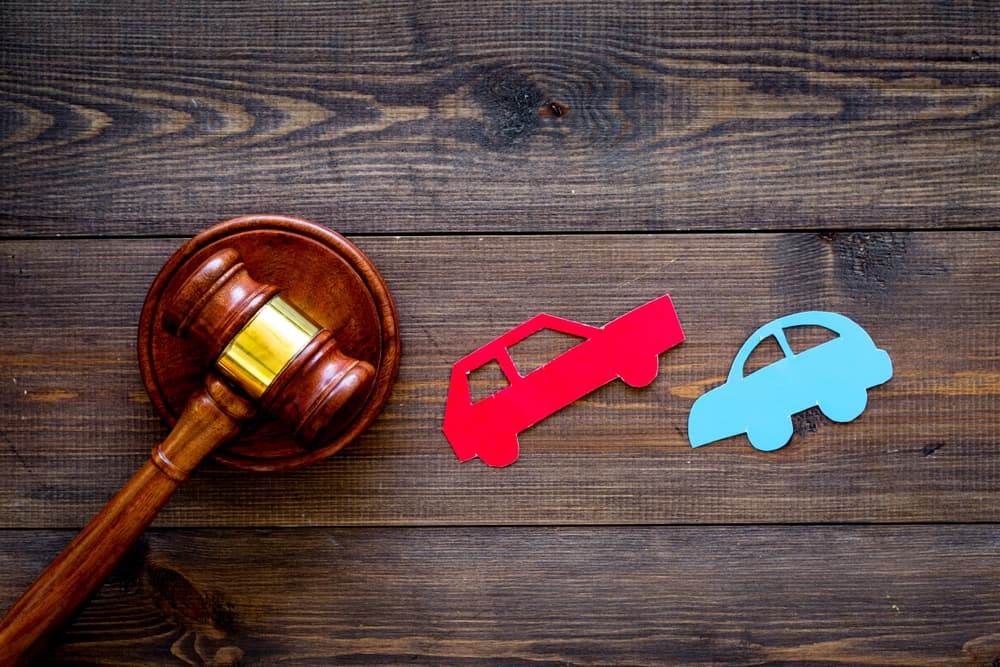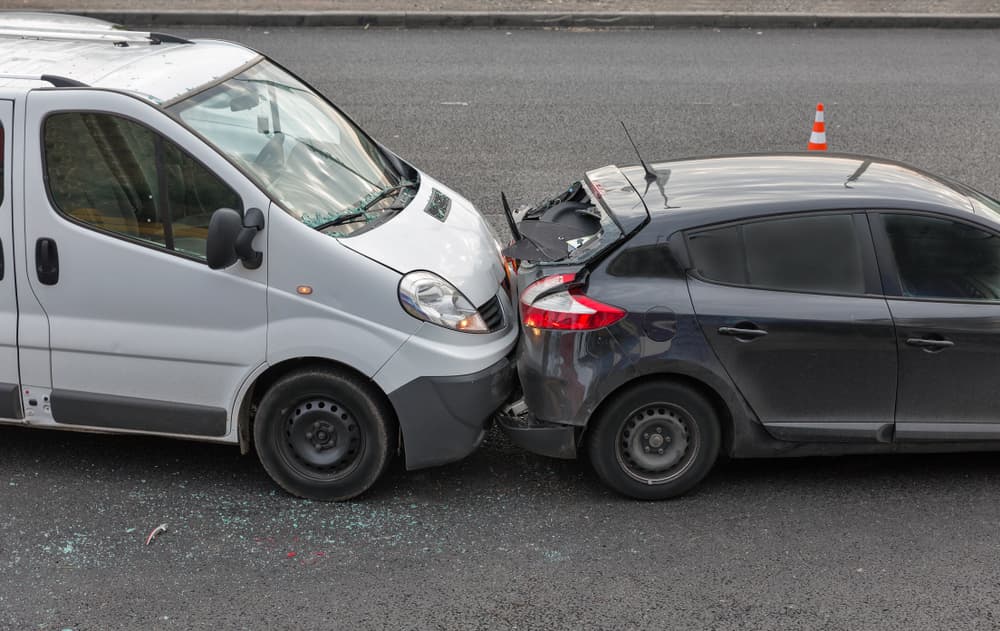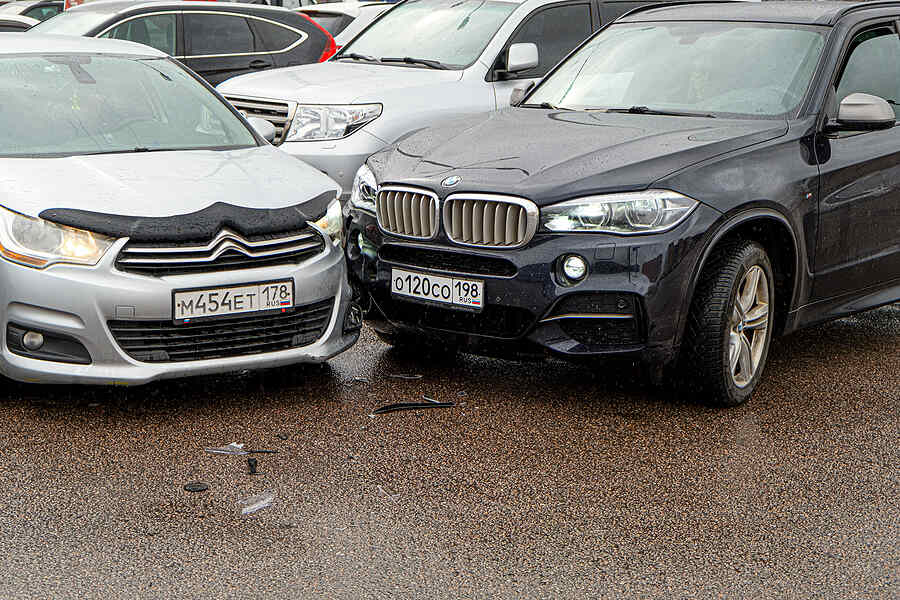Planning a road trip in Chicago can be an exciting adventure, but it also comes with its own set of safety considerations. With busy highways, unpredictable weather, and unfamiliar roads, it's important to be prepared to ensure a smooth and safe journey. From checking your vehicle's condition to mapping out your route and packing essential emergency supplies, there are several steps you can take to protect yourself and your loved ones on the road.
In addition, familiarizing yourself with local traffic laws and regulations can help you avoid any potential legal issues. Remember, safety should always be a top priority when embarking on a road trip or even just heading to work in the morning. So before hitting the road, take some time to plan and prepare, ensuring a memorable journey for all the right reasons.
However, if you find yourself with a legal issue, an experienced Chicago car accident attorney can guide you through the legal process, ensuring that your rights are protected.
Schedule a Free Initial Consultation Today!
Tips to Make Your Next Chicago Road Trip Safer
- Check Your Vehicle's Condition
- Map Out Your Route
- Pack Essential Emergency Supplies
- Familiarize Yourself with Local Traffic Laws and Regulations
Check Your Vehicle's Condition
Before embarking on a road trip, it's essential to ensure that your vehicle is in optimal condition. You should also take these actions on a regular basis just for everyday driving in and around Chicago. Taking the time to perform a thorough inspection before you hit the road can help prevent any unexpected breakdowns or safety hazards. Here are a few key areas to check:
Tires
Check the tread depth and inflation of your tires. Make sure they are correctly inflated to the recommended pressure for your vehicle. Bald or underinflated tires can lead to poor handling and reduced traction, especially in wet or slippery conditions.
Brakes
Brakes are an imperative component of your vehicle's safety system. Check your brake pads and rotors for any signs of wear and tear. Squeaking or grinding noises when applying the brakes may indicate the need for a brake inspection or replacement.
Lights and Signals
Ensure that all your lights and signals are working correctly. Check the headlights, taillights, turn signals, and brake lights. Proper lighting not only helps you see and be seen by other drivers but also ensures your intentions are clear on the road.
Fluid Levels
Check the fluid levels of your engine oil, coolant, brake fluid, and windshield wiper fluid. Low or dirty fluids can lead to engine damage or visibility issues, jeopardizing your safety on the road. If any fluids are low, top them up before your trip.
Wipers and Windshield
Inspect your windshield wipers for damage or deterioration. Replace them if necessary to ensure clear visibility, especially in adverse weather conditions. Also, check your windshield for any chips or cracks that may impair your line of sight and get them repaired if needed.
Map Out Your Route
Having a well-planned route can save you time, stress, and potential hazards along the way. Before setting off on your road trip, take the time to map out your route thoroughly. Here are a few tips to consider:
Plan for Traffic
Check the traffic conditions and peak travel times in Chicago before you start your journey. This will help you avoid congested areas and plan your departure accordingly. Consider using navigation apps or websites that provide real-time traffic updates to navigate the city more efficiently.
Identify Rest Stops
During your road trip to Chicago, it is vital to take breaks and avoid fatigue. Driving for long periods without breaks can lead to exhaustion, reduced concentration, and slower reaction times. Plan regular stops along your route to stretch your legs, rest, and refresh. Planned rest stops can also help you stay alert and refreshed throughout your journey, so you aren’t at risk of falling asleep at the wheel.
Utilize rest areas, gas stations, or scenic viewpoints as opportunities to take breaks and stay alert. Avoid driving during the late hours of the night when fatigue is more likely to set in. If you start to feel drowsy, pull over to a safe location and take a short nap or switch drivers if possible. Your safety and the safety of others should always be a top priority.
Consider Weather Conditions
Chicago weather can be unpredictable, so it's essential to check the weather forecast before you hit the road. Be prepared for rain, snow, or extreme temperature changes. Adjust your route or travel plans accordingly to ensure a safe and comfortable journey.
Pack Essential Emergency Supplies
No matter how well you plan your trip, unexpected situations can still arise. Packing essential emergency supplies can help you handle these situations and stay safe on the road. Here are some items to consider:
First Aid Kit
Always carry a well-stocked first aid kit in your vehicle. It should contain basic supplies like bandages, antiseptic ointment, pain relievers, and any necessary prescription medications. In case of minor injuries, you'll be prepared to provide immediate medical attention.
Emergency Flares or Reflective Triangles
In case of a breakdown or accident, having emergency flares or reflective triangles can alert other drivers and help prevent additional collisions. Place them a safe distance behind your vehicle to create a visible warning for oncoming traffic.
Jumper Cables
A dead battery can quickly dampen your road trip. Carry a set of jumper cables in your vehicle to get your battery back up and running. It's always handy to have this backup solution in case you or another driver needs a boost.
Spare Tire and Tools
Flat tires happen, and having a spare tire and the necessary tools can save you a lot of time and hassle. Make sure your spare tire is inflated correctly and that you have the necessary tools, such as a jack and lug wrench, to change a tire if needed.
Extra Food and Water
Pack some non-perishable snacks and bottled water in case you find yourself stranded or in need of nourishment. Having these supplies on hand can provide you with some temporary sustenance until help arrives.
Blankets and Extra Clothing
In the event of an unexpected overnight stay or extreme weather conditions, having extra blankets and clothing can help keep you warm and comfortable. Pack a few blankets and some warm clothing items to prepare for such situations.
Familiarize Yourself with Local Traffic Laws and Regulations

When traveling to or in a busy city like Chicago, it's essential to familiarize yourself with local traffic laws and regulations. Knowing the rules of the road can help you avoid potential legal issues and keep yourself and others safe. Here are a few key points to keep in mind:
Speed Limits
Observe and obey the posted speed limits at all times. Remember that speed limits can vary depending on the type of road and the area you are driving in. Stay within the legal limits to ensure your safety and avoid any legal repercussions.
Seat Belt Laws
In Illinois, seat belt use is mandatory for all drivers and passengers. Ensure that everyone onboard your vehicle is properly restrained. Seat belts are one of the simplest and most effective ways to prevent injuries in the event of an accident.
Cell Phone Use
Using a handheld cell phone while driving is illegal in Illinois, except for hands-free devices or emergency situations. Put your phone away or use a hands-free device to avoid distractions and keep your focus on the road.
Child Safety Seats
If you are traveling with children, make sure they are properly secured in appropriate child safety seats. Follow the specific legal guidelines and age/weight recommendations for each child to guarantee their safety during the journey.
DUI Laws
Driving under the influence of drugs or alcohol is strictly prohibited in Illinois. It's important to understand that the legal blood alcohol concentration (BAC) limit for drivers in Illinois is 0.08 percent. Always designate a sober driver or use alternative transportation if you plan on consuming alcohol.
Defensive Driving Tips for Safety
Driving in a bustling city like Chicago can be a daunting and complex task, and it requires a high level of skill and alertness. With heavy traffic, aggressive drivers, and the constant presence of pedestrians, defensive driving is imperative for ensuring safety on the roads. This involves being aware of potential hazards, maintaining a safe distance from other vehicles, and always anticipating the actions of other drivers.
Additionally, obeying traffic laws, using turn signals, and avoiding distractions are all important components of defensive driving in Chicago. By practicing these safety tips, drivers can help reduce the risk of accidents and protect both themselves and others on the road. Remember, staying vigilant is the key to staying safe on Chicago's busy streets. Contact a local driving school or driving safety organization for further guidance and information.
In a city like Chicago, where traffic congestion and aggressive driving are common, defensive driving becomes even more important. By following these defensive driving safety tips, you can stay safe and protected while navigating the busy streets of Chicago:
- Stay Alert and Focused
- Maintain a Safe Following Distance
- Anticipate the Actions of Other Drivers
- Use Your Turn Signals
- Watch for Pedestrians and Cyclists
Stay Alert and Focused
One of the most critical aspects of defensive driving is staying alert and focused at all times. Avoid distractions such as using your phone, eating, or engaging in any activity that takes your attention away from the road.
Keep your eyes on the road and be aware of your surroundings. This includes scanning for potential hazards, such as other vehicles, pedestrians, or cyclists. Additionally, avoid driving under the influence of drugs or alcohol, as impaired driving significantly increases the risk of accidents.
Maintain a Safe Following Distance
Maintaining a safe following distance is essential for defensive driving. The rule of thumb is to maintain at least a three-second gap between your vehicle and the vehicle in front of you. This allows for enough time to react and maneuver in case of sudden stops or emergencies.
In heavy traffic, increase the following distance to five seconds or more. By maintaining a safe following distance, you can avoid rear-end collisions and give yourself enough time to react to any unexpected situations on the road.
Anticipate the Actions of Other Drivers
In order to be a defensive driver in Chicago, it's important to anticipate the actions of other drivers. This means being aware of their behavior and predicting their next moves. Watch for any signs of lane changes, turns, or sudden stops from other drivers.
By anticipating their actions, you can adjust your driving accordingly and avoid potential accidents. Pay close attention to their turn signals, brake lights, and any hand signals they may use. Always be prepared for the unexpected and be ready to react quickly if necessary.
Use Your Turn Signals
Using your turn signals is not only a traffic law requirement but also a significant aspect of defensive driving. Signaling your intentions allows other drivers to anticipate your moves and adjust their driving accordingly.
Whether you're changing lanes, making a turn, or merging onto a highway, always use your turn signals in advance. This simple act can prevent misunderstandings and reduce the risk of collisions on the road.
Watch for Pedestrians and Cyclists
Chicago is a city with a large number of pedestrians and cyclists. As a defensive driver, it's important to watch out for these vulnerable road users and give them the space and respect they deserve. Always yield to pedestrians at crosswalks and be aware of cyclists when sharing the road.
Exercise caution when passing parked cars, as pedestrians or cyclists may suddenly appear from between them. By being attentive to the presence of pedestrians and cyclists, you can prevent accidents and promote a safer environment for everyone.
Involved in an Accident In or Around Chicago? Legal Help is Available

Planning a road trip in Chicago can be an exciting adventure, but you should always prioritize safety. By checking your vehicle's condition, mapping out your route, packing essential emergency supplies, driving defensively, and familiarizing yourself with local traffic laws, you can ensure a smooth and safe journey.
However, accidents can still happen despite our best efforts to stay safe. In case of any legal concerns, it's essential to seek advice from a car accident lawyer. Contacting a well-versed Chicago car accident attorney can provide the guidance and support you need after being injured in an accident.
Whether you're dealing with insurance claims, personal injury, or any other legal matters, a car accident lawyer can help protect your rights and ensure you receive the compensation you deserve. Don't hesitate to reach out to a qualified personal injury lawyer who can help you manage any legal challenges that may arise from your time on Chicago area roads. Contact a skilled Chicago car accident attorney today.
Schedule a Free Initial Consultation Today!
Abels & Annes, P.C.
100 N LaSalle St #1710
Chicago, IL 60602
(312) 924-7575



